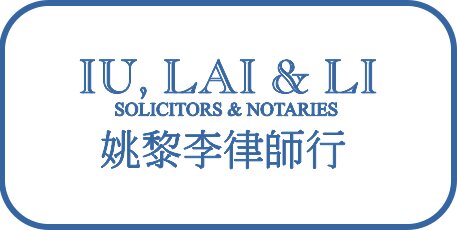Best Nonprofit & Charitable Organizations Lawyers in Admiralty
Share your needs with us, get contacted by law firms.
Free. Takes 2 min.
List of the best lawyers in Admiralty, Hong Kong
About Nonprofit & Charitable Organizations Law in Admiralty, Hong Kong
Admiralty, being a major commercial and legal hub within Hong Kong, hosts a significant number of nonprofit and charitable organizations. The law governing these entities is primarily encapsulated under the Companies Ordinance, which details the structural, operational, and financial compliance expected of them. In Hong Kong, such organizations can be structured as a company limited by guarantee, a trust, or a society, each with specific regulatory frameworks. This setup in Admiralty offers a strategic location for legal, financial services, and other pertinent advisory services crucial for the nonprofit sector's functioning and effectiveness.
Why You May Need a Lawyer
Various circumstances could necessitate the need for legal assistance for those involved with nonprofit and charitable organizations in Admiralty, Hong Kong:
- Establishing a New Entity: Setting up a new nonprofit organization involves complex legal documentation and regulatory approvals to ensure compliance with Hong Kong laws.
- Governance Issues: Legal advice is important for instituting good governance practices and resolving board disputes.
- Tax Compliance: Navigating tax exemptions and rebates for nonprofit entities requires precise legal knowledge and compliance checks.
- Contractual Matters: Drafting and reviewing agreements with vendors, donors, and volunteers to safeguard the organization’s interests.
- Regulatory Compliance: Ensuring adherence to reporting and disclosure requirements mandated by local laws.
Local Laws Overview
Nonprofit and charitable organizations in Admiralty, Hong Kong, must navigate several key legal aspects:
- The Companies Ordinance (Cap. 622): Governs the incorporation and operation of companies including nonprofits. Organizations often register as companies limited by guarantee.
- Inland Revenue Ordinance: Offers provisions about the tax treatment of charities, including exemptions under specific conditions.
- Societies Ordinance: Used by some organizations to register as societies, especially those focusing on member-based activities.
- Trust Law: Some nonprofits operate under trust structures, necessitating a sound understanding of trust law.
- Data Privacy: The Personal Data (Privacy) Ordinance is crucial in managing stakeholder information responsibly.
Frequently Asked Questions
What is the best structure for a nonprofit organization in Hong Kong?
The optimal structure depends on your organization’s goals. A company limited by guarantee is common for larger operations, while a society might be suitable for member-oriented activities.
Are there any tax benefits for charities in Hong Kong?
Yes, registered charities in Hong Kong may qualify for certain tax exemptions, provided they adhere to the conditions outlined in the Inland Revenue Ordinance.
How can I ensure my nonprofit maintains compliance with Hong Kong laws?
Regular audits, adherence to financial reporting standards, and updates on legal developments are integral to maintaining compliance.
What is the role of a company secretary in a nonprofit?
A company secretary for a nonprofit ensures compliance with statutory and regulatory requirements and supports the board's governance processes.
How do I register a new nonprofit in Hong Kong?
Registration involves selecting the appropriate structure, preparing legal documentation, and fulfilling the requirements under relevant ordinances like the Companies Ordinance.
What licenses might a charity need in Hong Kong?
Depending on your activities, you may need licenses for fundraising, conducting specific activities, or operating in certain areas.
Can foreign individuals serve on the board of a Hong Kong nonprofit?
Yes, foreign individuals can serve on the board, though practical considerations and regulatory constraints should be examined.
How is nonprofit income typically regulated in Hong Kong?
Nonprofits must utilize their income in furtherance of their objectives, and there are regulations ensuring proper reporting and disclosure.
What is a 'public benefit' requirement for charities?
Charities must serve the public good, and this is a criterion for obtaining charitable status and related tax benefits.
Is it mandatory for nonprofits to have audited accounts?
While not always mandatory, many nonprofits opt for audited accounts to build trust and demonstrate transparency.
Additional Resources
For further assistance and information, you might consider consulting the following resources:
- The Companies Registry: Offers guidance on company formation and compliance.
- The Inland Revenue Department: Provides details on tax exemption applications for charities.
- The Society for Community Organization (SoCO): Offers guidance and support services for nonprofits.
- Professional Legal Services Firms: Many law firms in Admiralty specialize in nonprofit law.
Next Steps
If you seek legal assistance for a nonprofit or charitable organization in Admiralty, Hong Kong, the first step is to identify the scope of legal support needed. Reach out to specialized law firms or legal practitioners who offer services for nonprofit entities. Gathering all necessary documentation and a clear outline of your legal queries will help streamline the process with your legal advisor. Additionally, stay informed about the latest legal developments affecting nonprofit operations in Hong Kong by attending relevant workshops and seminars.
Lawzana helps you find the best lawyers and law firms in Admiralty through a curated and pre-screened list of qualified legal professionals. Our platform offers rankings and detailed profiles of attorneys and law firms, allowing you to compare based on practice areas, including Nonprofit & Charitable Organizations, experience, and client feedback.
Each profile includes a description of the firm's areas of practice, client reviews, team members and partners, year of establishment, spoken languages, office locations, contact information, social media presence, and any published articles or resources. Most firms on our platform speak English and are experienced in both local and international legal matters.
Get a quote from top-rated law firms in Admiralty, Hong Kong — quickly, securely, and without unnecessary hassle.
Disclaimer:
The information provided on this page is for general informational purposes only and does not constitute legal advice. While we strive to ensure the accuracy and relevance of the content, legal information may change over time, and interpretations of the law can vary. You should always consult with a qualified legal professional for advice specific to your situation.
We disclaim all liability for actions taken or not taken based on the content of this page. If you believe any information is incorrect or outdated, please contact us, and we will review and update it where appropriate.













